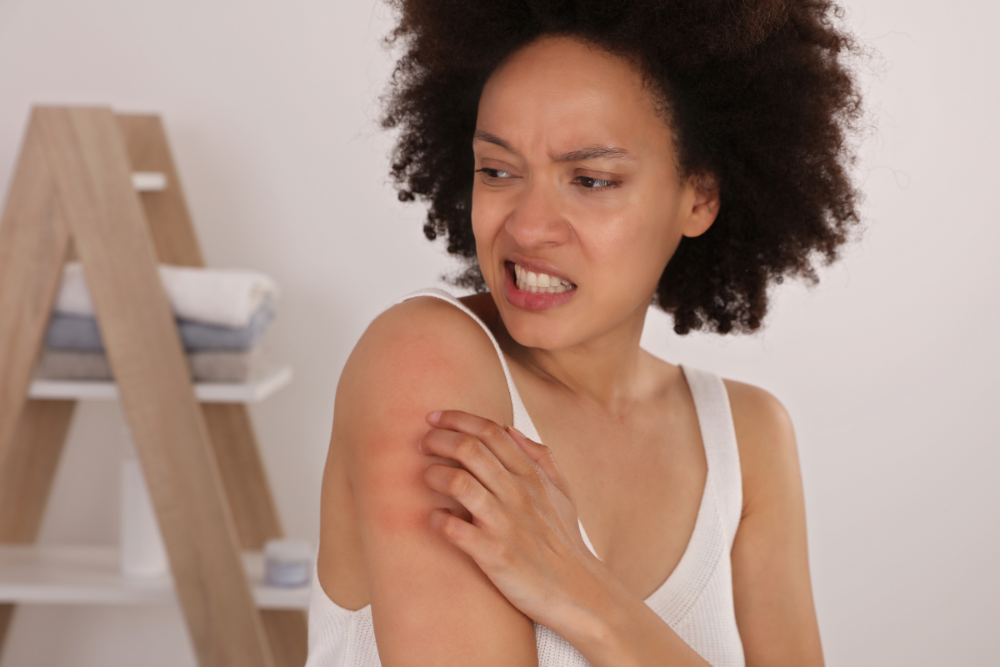Trigger warning: this blog article covers topics of abuse, anxiety and depression.
If you, or someone you know, is experiencing suicidal thoughts or crisis, visit your nearest hospital emergency or seek help from these suicide crisis helplines.
Positive sexual health can help to improve your overall wellbeing, often resulting in fewer relationship problems and a reduced likelihood of developing mental health issues.
It’s important to understand that there is a broad range of sexual health issues facing both men and women, including gender identity and sexual orientation, pregnancy, impeded sexual function, abusive behaviour and transmittable infections.
Although male sexual dysfunction is not often discussed between friends, studies have revealed that it may be more common than you think.
Within the general population of Australia, research has shown that 55% of men reported experiencing at least one sexual problem in a 12 month period. During the same year, more than 60% of women also disclosed problems with sexual dysfunction.
By developing a better understanding of the most common sexual problems, you will not only have the knowledge to protect against the unexpected, but also the peace of mind that comes with knowing what treatments are available to you.
Erectile dysfunction
With approximately 52% of men experiencing erectile dysfunction (ED) throughout some stage of their life, this is one of the most common sexual problems facing men of all ages. Although evidence shows an increased chance of developing erectile dysfunction as you age, more than 25% of young men under the age of 40 have also reported moderate to severe issues with ED.
There is no one exact cause for erectile dysfunction, as it can manifest due to number of contributing factors; including performance anxiety, mental health, smoking or vaping, restricted blood flow to the penis, excessive alcohol consumption and certain medications.
ED treatment
Developing erectile dysfunction can be a disheartening experience, but it’s important to know that it is often a highly manageable condition. If you’re concerned that ED may be negatively impacting your sexual relations, talk to a men’s health specialist about easy and convenient treatments to improve erectile function.
Premature ejaculation
Alongside erectile dysfunction, premature ejaculation (PE) is another of the most common sexual problems reported by men of all ages. PE is a sexual dysfunction that can be categorised as early ejaculation, when engaging in sexual intercourse.
For both men and women, the sexual response cycle consists of four distinct phases; excitement, plateau, orgasm and resolution. In cases of premature ejaculation, the sexual response cycle is significantly shorter, with elevated excitement occurring before a minor plateau and rapid ejaculation with orgasm.
PE treatment
Up to 40% of men will experience PE at some point in their lives, whether as an acquired form of sexual dysfunction or a lifelong condition. In combination with behavioural therapy, SSRI medications have been proven as one of the most effective treatments for premature ejaculation. These medications are taken prior to sex and assist in achieving delayed ejaculation.
Retrograde ejaculation
One of the lesser known issues relating to male sexual health, retrograde ejaculation occurs when semen is not secreted during orgasm, but rather pushed into the bladder. Although sexual arousal can still be achieved by men experiencing retrograde ejaculation, very little or no semen will emerge through the penis. This compromised sexual function is unlikely to cause any pain, but may cause male infertility in rare cases.
Low libido or low sex drive
Throughout your life, normal changes to your sex drive are to be expected.
A low libido is characterised as diminished interest in sexual activity or lack of sexual desire. While many men will experience low libido throughout various stages in life, it can impede sexual function when it occurs for a prolonged period of time.
As with most male sexual health concerns, hormones often play a crucial role in affecting sexual desire and libido. Low testosterone levels can decrease the desire for sexual activity, which can sometimes impact mental health and relationships.
Low libido can also be caused by a number of other lifestyle factors, including depression, high blood pressure, heart disease, sleep disorders, nerve damage and too much alcohol.
Regardless of previous libido and sexual history, decreasing testosterone levels are a natural part of ageing. If having a low sex drive is affecting your sexual performance, there are a number of treatments available including supplements and topical creams.
Sexually transmitted infections (STIs)
More than 1 million STIs are acquired everyday worldwide, according to the latest study from the World Health Organisation. Sexually transmitted infections can be passed on through all forms of sexual activity and have a high rate of transfer, due to the majority being asymptomatic in nature. STIs can directly impact reproductive health and sexual dysfunction in men and women, through infertility, cancers, increased risk of HIV and generalised stigma.
Multiple sexual partners may increase the likelihood of transmission, so it’s important to talk with your doctor about regular check ups and any other tests that may decrease your chances of infection.
Unhealthy habits causing sexual dysfunction in men
Along with underlying health conditions or emotional concerns, there are a variety of lifestyle choices that may impede sexual function, including:
-
Lack of sleep
-
Smoking or vaping
-
Unhealthy eating
-
Not enough exercise
-
Increased stress
-
Use of illicit drugs
-
Too much alcohol
Performance anxiety
Anxiety disorders affect around 2 out of 5 Australians, according to a study conducted in 2021 by the Australian Bureau of Statistics. Performance anxiety can be triggered by various situations in life, including work, hobbies, exams, public speaking and engaging in sexual activity.
In many cases, performance anxiety can worsen when you are unaware of the underlying cause. In order to break the cycle, you first need to identify the source of the problem and learn how to spot your triggers.
Regardless of the desire to engage in sex, anxiety has the potential to affect sexual functioning of any man, at any age. The cause of performance anxiety will be unique to each individual, although some of the most commonly identified reasons are unrealistic expectations, relationship difficulties, depression and negative self image.
Physical causes and medical conditions
Many male sexual problems can also be attributed to underlying medical disorders or problems with physical health, such as:
-
Nerve damage
-
High blood pressure
-
Kidney disease
-
Obesity
-
Sleep disorders
-
Damaged spinal cord
-
Heart disease
-
Immobility
Psychological causes associated with sexual disorders
There are many factors that can negatively impact sexual performance, with some directly related to psychological or emotional health problems.
Although mental health issues are prevalent in both men and women, evidence suggests that men are far less likely to seek help for their mental wellbeing, even when experiencing symptoms or having been previously diagnosed with a mental illness.
Anxiety, depression and other serious affective disorders often limit the capability for interpersonal and sexual connections, which can lead to relationship conflicts and low self esteem.
Certain medications prescribed for the treatment of mental illness may also decrease sexual desire, so it’s always important to discuss any possible concerns with your doctor.
If you, or someone you know, is experiencing depression, suicidal thoughts or crisis, visit your nearest hospital emergency or seek help from these crisis helplines.
Treatment options to improve sexual function
Healthy lifestyle changes
Making some healthy lifestyle changes can not only improve sexual activity, but it can also boost physical fitness and may aid in the treatment of certain mental illness conditions.
Quitting the use of nicotine products will help to regulate blood pressure and increase blood flow to your extremities. Low testosterone is a risk factor for various forms of male sexual dysfunction, but can often be managed through supplements, protein-rich foods and regular exercise.
Psychological therapy and support
If you believe a psychological problem may by the root of your sexual dysfunction, counselling and sex therapy services are available. Open communication and honesty are the foundation of any good relationship, both in and out of the bedroom, so it’s important that all parties be included and have the chance to talk openly about any possible concerns.
Prescription medication
Dependent upon the cause and type of sexual problems you are facing, prescription medications may provide an effective option, to improve sexual function and overall health.
Oral medications for ED have been researched and developed for more than 20 years, with the intention of determining the effectiveness of sildenafil citrate (the active ingredient in the most commonly prescribed erectile dysfunction medications). Recent studies have revealed positive results, with approximately 95% of users reporting an improvement in sexual satisfaction.
Medication has also proven to be highly effective in the treatment of sleep disorders, cold sores, genital herpes and premature ejaculation.
We’re here to help
If you’re facing issues with sexual dysfunction, or have any concerns about your overall health, we’re here to help.
Start a conversation with one the hub.health doctors, who specialise in the individualised treatment of men’s health problems.





